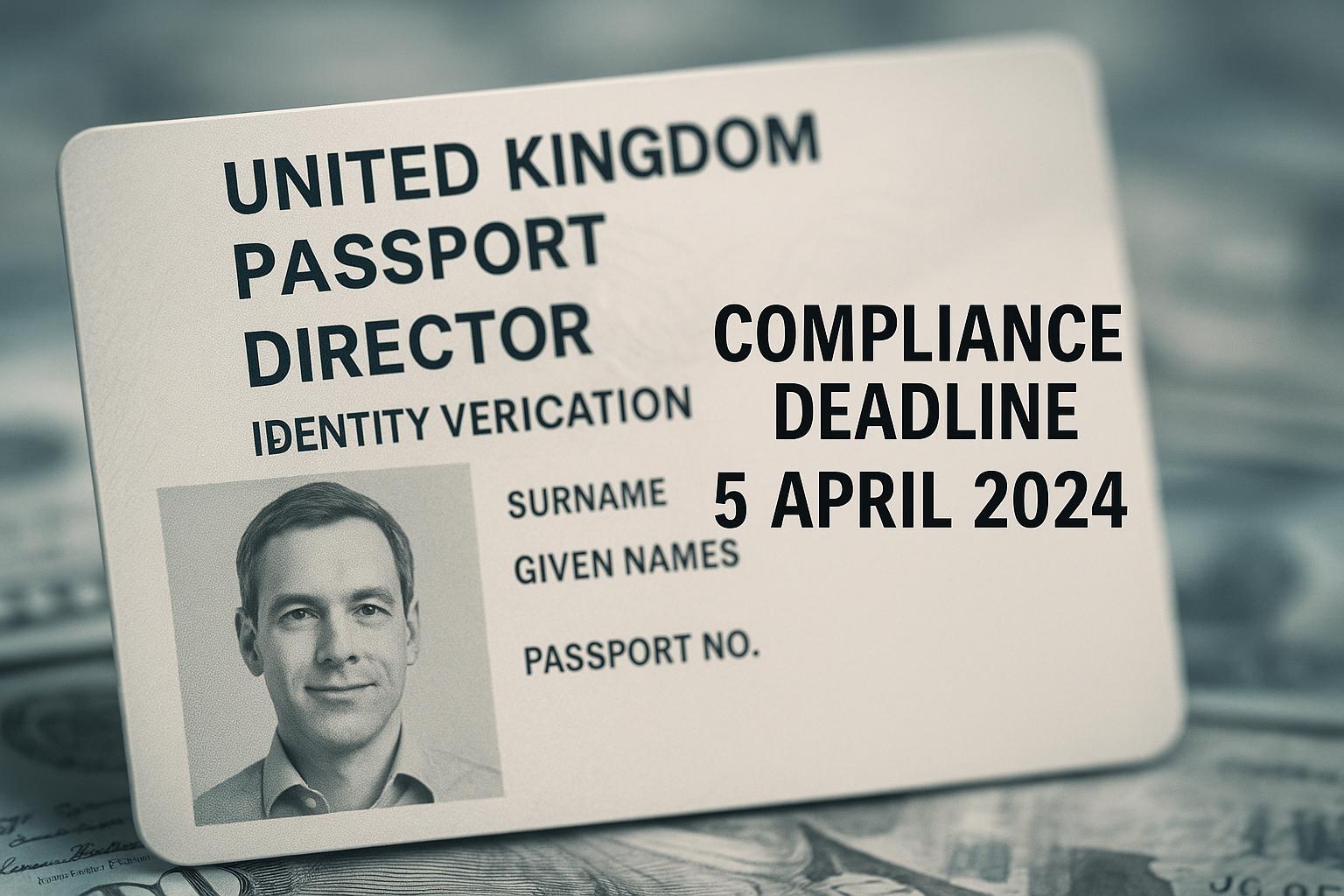More than five million company directors in the UK have yet to comply with new identity verification checks ahead of a key deadline, underscoring the challenges involved in the government’s latest bid to tackle corporate fraud. The rules, introduced under the Economic Crime and Corporate Transparency Act 2023, aim to restore public confidence in the UK's corporate registry and combat the use of shell companies for illicit purposes, such as money laundering.
According to Companies House, which manages the UK's public register of companies, only around 1.5 million of the approximately seven million directors listed have registered for the new checks, with the deadline for compliance fast approaching. After this cutoff, directors who have not completed verification will be barred from accessing Companies House services, including updating company records and submitting annual accounts. This represents a significant step in what is described as the most comprehensive reform of Companies House since its establishment in 1844.
Industry bodies broadly support the anti-fraud measures, which seek to end the UK's problematic reputation as a haven for corporate crime. Nevertheless, concerns remain about the practical challenges faced by company directors in completing the process. The system employed, called One Login, has been criticised for being confusing, unreliable, and cumbersome. Users report frustrating technical difficulties such as failure to receive authentication codes, being trapped in endless login loops, and documents being rejected as invalid proof of identity.
The Federation of Small Businesses highlighted the importance of photo ID verification in fighting fraud but emphasised the need for Companies House to ensure its system can handle the volume and complexity of applications without causing undue disruption. The Institute of Directors echoed these concerns, noting that without smoother navigation and clearer guidance, the process risks penalising legitimate firms.
The crackdown responds to high-profile investigations revealing serious exploitation of company registration rules. A BBC inquiry exposed a Kurdish crime network facilitating illegal work through a web of fraudulent businesses, with fake directors, sometimes paid actors, appearing on official paperwork without any involvement in running these companies. Past efforts to expose weaknesses in the system include a notable incident where a businessman managed to register former Business Secretary Vince Cable as a director on a bogus company, highlighting how easy it once was to abuse the registration process.
Experts maintain the reforms are a positive step but argue more needs to be done. Critics urge Companies House to invest in additional staff for proper identity verification and warn the current system still contains "massive holes" allowing fraudulent company formations under stolen or fictitious identities.
The implementation of the Economic Crime and Corporate Transparency Act follows a staged timeline. From 18 November 2025, identity verification will become mandatory for new directors and persons of significant control (PSCs) before they assume their roles. Existing directors and PSCs will have a 12-month transition period to verify their identities, which will be coordinated with their annual confirmation statement filings. By spring 2026, identity verification will be compulsory for all individuals filing documents with Companies House. Meanwhile, third-party agents acting on behalf of companies will be required to register as Authorised Corporate Service Providers.
Companies House has stated it is undertaking extensive communications to ensure businesses understand these changes and obligations. The introduction of identity verification is seen as a pivotal tool in enhancing the reliability and integrity of company data and addressing the misuse of the register.
Despite the challenges, the broad consensus among business groups and regulators is that the reforms are vital to safeguarding the UK’s business environment against economic crime, provided the technical and operational issues with the verification system are resolved promptly.
📌 Reference Map:
- [1] (Daily Mail) - Paragraphs 1, 2, 3, 4, 5, 6, 7, 8
- [2] (UK Government Economic Crime and Corporate Transparency Act Transition Plan) - Paragraph 9, 10
- [3] (UK Government Companies House Update) - Paragraph 9, 10
- [4] (Ward Hadaway Insights) - Paragraph 9, 10
- [5] (Suntera Commentary) - Paragraph 9, 10
- [6] (PwC Implementation Update) - Paragraph 9, 10
- [7] (Daily Star) - Paragraph 5
Source: Noah Wire Services
